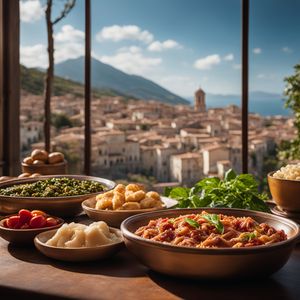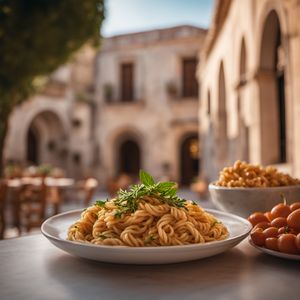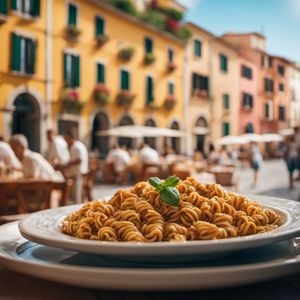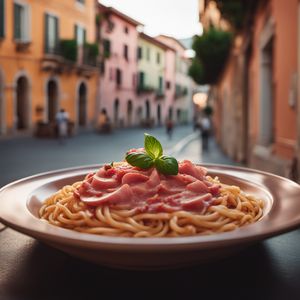
Dish
Genovesi
Genovesi are made with a shortcrust pastry that is filled with a sweet ricotta cream. The pastry is then baked until it is golden brown and crispy. The ricotta cream is made with fresh ricotta cheese, sugar, and lemon zest. The filling is creamy and sweet, with a hint of tanginess from the lemon zest. Genovesi are typically served as a dessert, but they can also be enjoyed as a snack or with a cup of coffee.
Origins and history
Genovesi are believed to have originated in the city of Erice, which is located in the province of Trapani in Sicily. They have been a popular pastry in the region for centuries and are often served during religious festivals and celebrations. The name "Genovesi" is thought to have come from the fact that the pastry was originally made by Sicilian pastry chefs who were trained in Genoa, Italy.
Dietary considerations
Not suitable for those who are lactose intolerant or have a dairy allergy. High in sugar and should be consumed in moderation.
Variations
There are many variations of Genovesi, including those that are filled with chocolate or fruit. Some recipes also call for the addition of almonds or other nuts to the filling.
Presentation and garnishing
Genovesi are typically served on a small plate or dish, with a dusting of powdered sugar on top. They can also be garnished with a sprig of fresh mint or a slice of lemon.
Tips & Tricks
To ensure that the pastry is crispy and golden brown, it is important to bake it at a high temperature for a short amount of time. The filling should be creamy and smooth, with no lumps or graininess. It is also important to use fresh ricotta cheese for the filling, as this will give the pastry a rich and creamy flavor.
Side-dishes
Genovesi can be served on their own as a dessert or snack, or they can be paired with fresh fruit or a dollop of whipped cream.
Drink pairings
Genovesi are traditionally served with a cup of coffee or espresso. They can also be paired with a sweet dessert wine, such as Marsala or Moscato.
Delicious Genovesi recipes
More dishes from this category... Browse all »

Anpan
Japanese cuisine

Antakya künefesi
Turkish cuisine

Apfelstrudel
Austrian cuisine

Appelflap
Dutch cuisine

Apple Cider Doughnut
American cuisine

Asabi
Lebanese cuisine

Asawer
Lebanese cuisine

Athirasa
Sri Lankan cuisine
More cuisines from this region... Browse all »

Abruzzese and Molisan cuisine
Savory, Earthy, Rustic, Hearty

Apulian cuisine
Fresh, Savory, Rustic, Simple

Arbëreshë cuisine
Savory, Tangy, Herbaceous, Spicy

Basilicatan (Lucanian) cuisine
Savory, Earthy, Rustic, Hearty

Ligurian cuisine
Light, Delicate, Herbaceous, Salty

Lombard cuisine
Rich, Savory, Meaty, Cheesy

Neapolitan cuisine
Bold, Savory, Spicy, Tangy, Fresh

Roman cuisine
Fresh, Light, Herbaceous, Tangy, Savory

